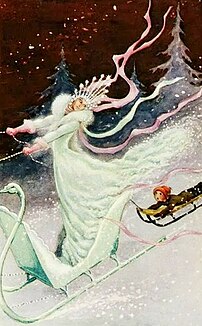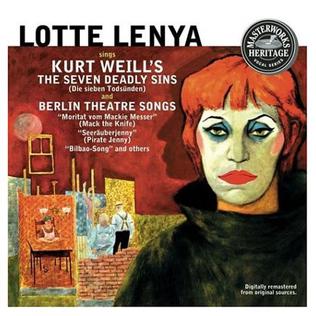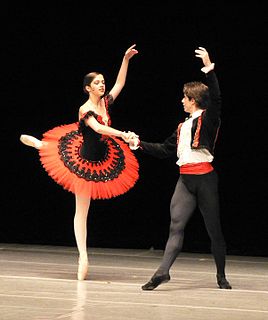Related Research Articles

The Shining is a 1977 horror novel by American author Stephen King. It is King's third published novel and first hardback bestseller, and the success of the book firmly established King as a preeminent author in the horror genre. The setting and characters are influenced by King's personal experiences, including both his visit to The Stanley Hotel in 1974 and his struggle with alcoholism. The novel was adapted into a 1980 film of the same name. The book was followed by a sequel, Doctor Sleep, published in 2013.

"The Snow Queen" is an original fairy tale by Danish author Hans Christian Andersen. It was first published 21 December 1844 in New Fairy Tales. First Volume. Second Collection. 1845. The story centres on the struggle between good and evil as experienced by Gerda and her friend, Kai.

The Two Noble Kinsmen is a Jacobean tragicomedy, first published in 1634 and attributed jointly to John Fletcher and William Shakespeare. Its plot derives from "The Knight's Tale" in Geoffrey Chaucer's The Canterbury Tales, which had already been dramatised at least twice before. This play is believed to have been William Shakespeare's final play before he retired to Stratford-Upon-Avon and died three years later.

Henry VIII is a collaborative history play, written by William Shakespeare and John Fletcher, based on the life of Henry VIII. An alternative title, All Is True, is recorded in contemporary documents, with the title Henry VIII not appearing until the play's publication in the First Folio of 1623. Stylistic evidence indicates that individual scenes were written by either Shakespeare or his collaborator and successor, John Fletcher. It is also somewhat characteristic of the late romances in its structure. It is noted for having more stage directions than any of Shakespeare's other plays.
A prologue or prolog is an opening to a story that establishes the context and gives background details, often some earlier story that ties into the main one, and other miscellaneous information. The Ancient Greek prólogos included the modern meaning of prologue, but was of wider significance, more like the meaning of preface. The importance, therefore, of the prologue in Greek drama was very great; it sometimes almost took the place of a romance, to which, or to an episode in which, the play itself succeeded.

The Seven Deadly Sins is a satirical ballet chanté in seven scenes composed by Kurt Weill to a German libretto by Bertolt Brecht in 1933 under a commission from Boris Kochno and Edward James. It was translated into English by W. H. Auden and Chester Kallman. It was the last major collaboration between Weill and Brecht.

Owen Ramsay Nares had a long stage and film career. Besides his acting career, he was the author of Myself, and Some Others (1925).

Don Quixote is a ballet in 3 acts, based on episodes taken from the famous novel Don Quixote de la Mancha by Miguel de Cervantes. It was originally choreographed by Marius Petipa to the music of Ludwig Minkus and first presented by the Ballet of the Imperial Bolshoi Theatre of Moscow, Russia on 26 December [O.S. 14 December] 1869. Petipa and Minkus revised the ballet into a far more expanded and elaborated edition in five acts and eleven scenes for the Imperial Ballet, first presented on 21 November [O.S. 9 November] 1871 at the Imperial Bolshoi Kamenny Theatre of St. Petersburg.
The Woman's Prize, or the Tamer Tamed is a Jacobean comedy written by John Fletcher. It was first published in the first Beaumont and Fletcher folio of 1647, though it was written several decades earlier. There is no doubt that the play is the work of Fletcher alone; his highly distinctive and characteristic pattern of linguistic preferences is continuous through the text.

Evangeline is a musical with a book by Jamie Wax, lyrics by Wax and Paul Taranto, and music by Paul Taranto.
The Loyal Subject is a Jacobean era stage play, a tragicomedy by John Fletcher that was originally published in the first Beaumont and Fletcher folio of 1647.
The Pilgrim is a late Jacobean era stage play, a comedy by John Fletcher that was originally published in the first Beaumont and Fletcher folio of 1647.
Dracula is an adaptation, first published in 1996, by American playwright Steven Dietz of Bram Stoker's 1897 novel by the same name. Though it has never run on Broadway, the author lists it among his most financially successful works, and it is frequently performed near Halloween in regional and community theaters. Closely following the plot of the novel, the play chronicles Count Dracula's journey to England, his stalking of two young women, and his pursuit and eventual defeat by the heroines' suitors and their associates.

Rape upon Rape, also known as The Justice Caught in His Own Trap and The Coffee-House Politician, is a play by Henry Fielding. It was first performed at the Haymarket Theatre on 23 June 1730. The play is a love comedy that depicts the corruption rampant in politics and in the justice system. When two characters are accused of rape, they deal with the corrupt judge in separate manners. Though the play was influenced by the rape case of Colonel Francis Charteris, it used "rape" as an allegory to describe all abuses of freedom, as well as the corruption of power, though it was meant in a comedic, farcical manner.
The Faithful Heart is a 1932 British drama film directed by Victor Saville and starring Herbert Marshall, Edna Best and Mignon O'Doherty. It is based on the 1921 play The Faithful Heart by Monckton Hoffe.
Benjamin Antier, real name Benjamin Chevrillon,, was a 19th-century French playwright.

Françoise de Rimini is an opera in four acts with a prologue and an epilogue. The last opera composed by Ambroise Thomas, it sets a French libretto by Michel Carré and Jules Barbier which is based on an episode from Dante's Divine Comedy. The opera was first performed by the Paris Opera on 14 April 1882 but fell into relative obscurity until its revival in 2011.
The Lady's Revenge, or the Rover Reclaim'd is a 1734 comedy play by the British writer William Popple.
The Patriot, or, The Italian Conspiracy is a 1702 tragedy by the English writer Charles Gildon. Based on the life of Cosimo de' Medici but also inspired by Nathaniel Lee's 1680 work Lucius Junius Brutus set during the Roman Republic.
Percy is a 1777 tragedy by the British writer Hannah More. It was inspired by the French play Gabrielle de Vergy by Pierre-Laurent Buirette de Belloy.